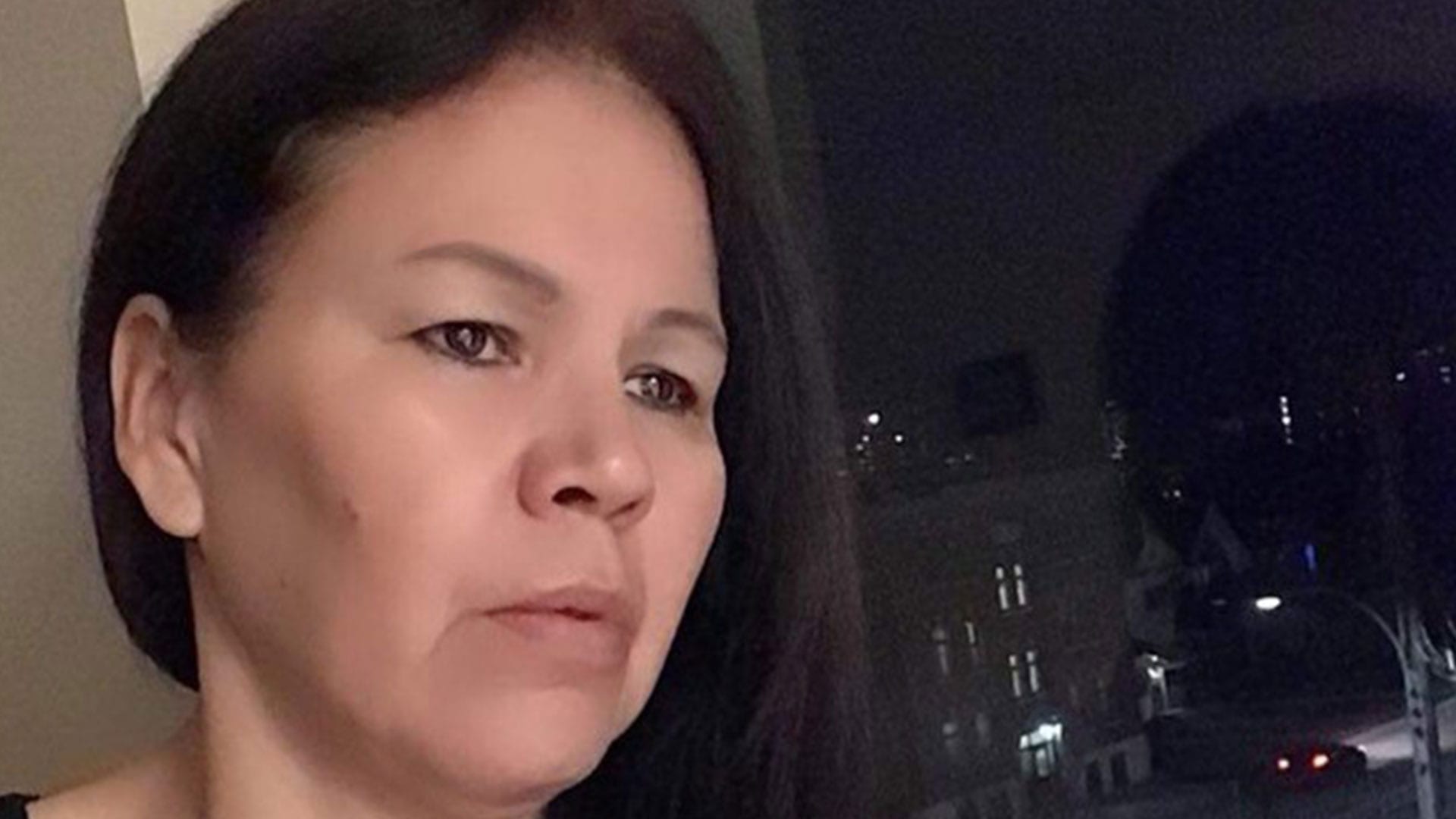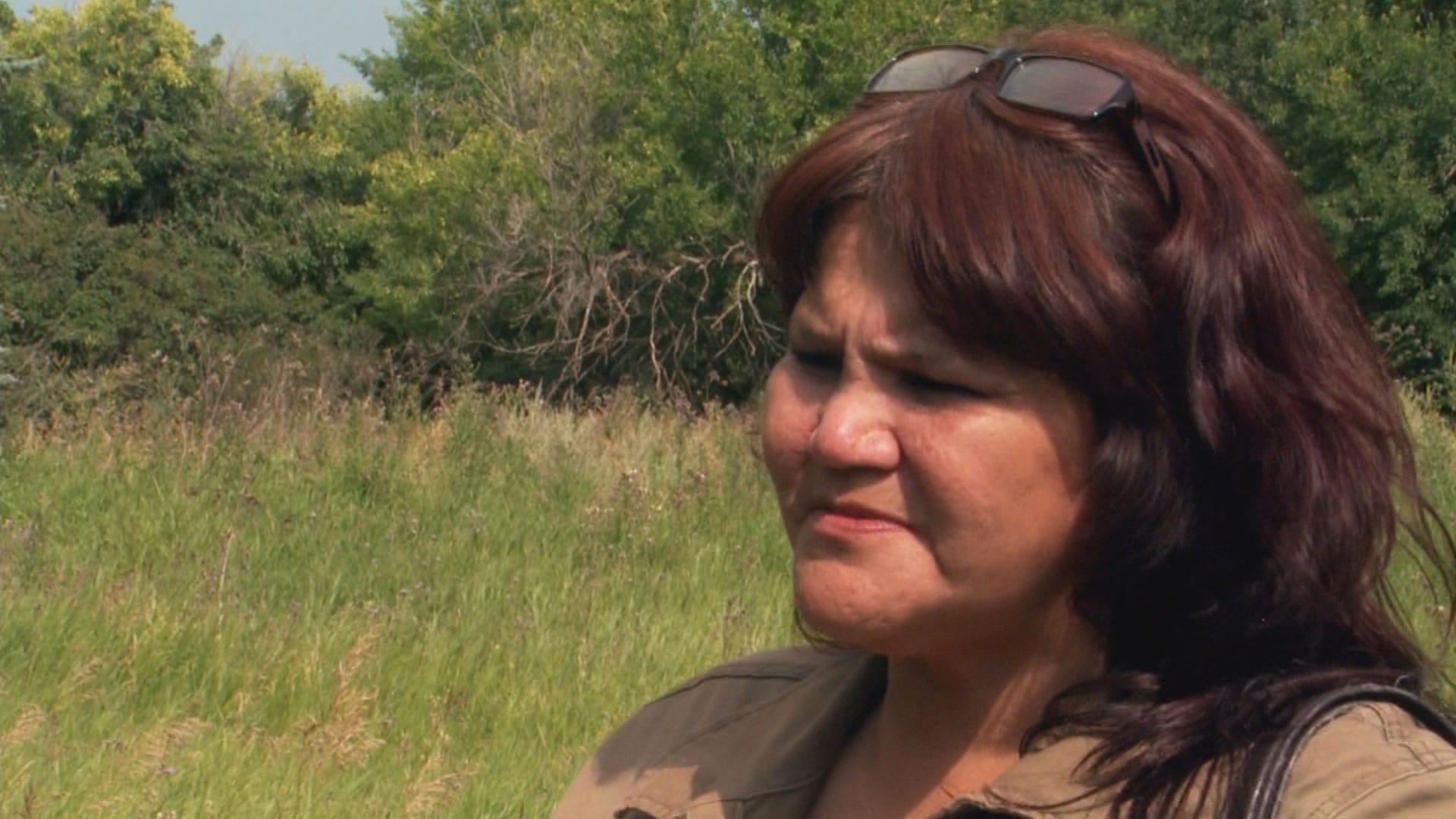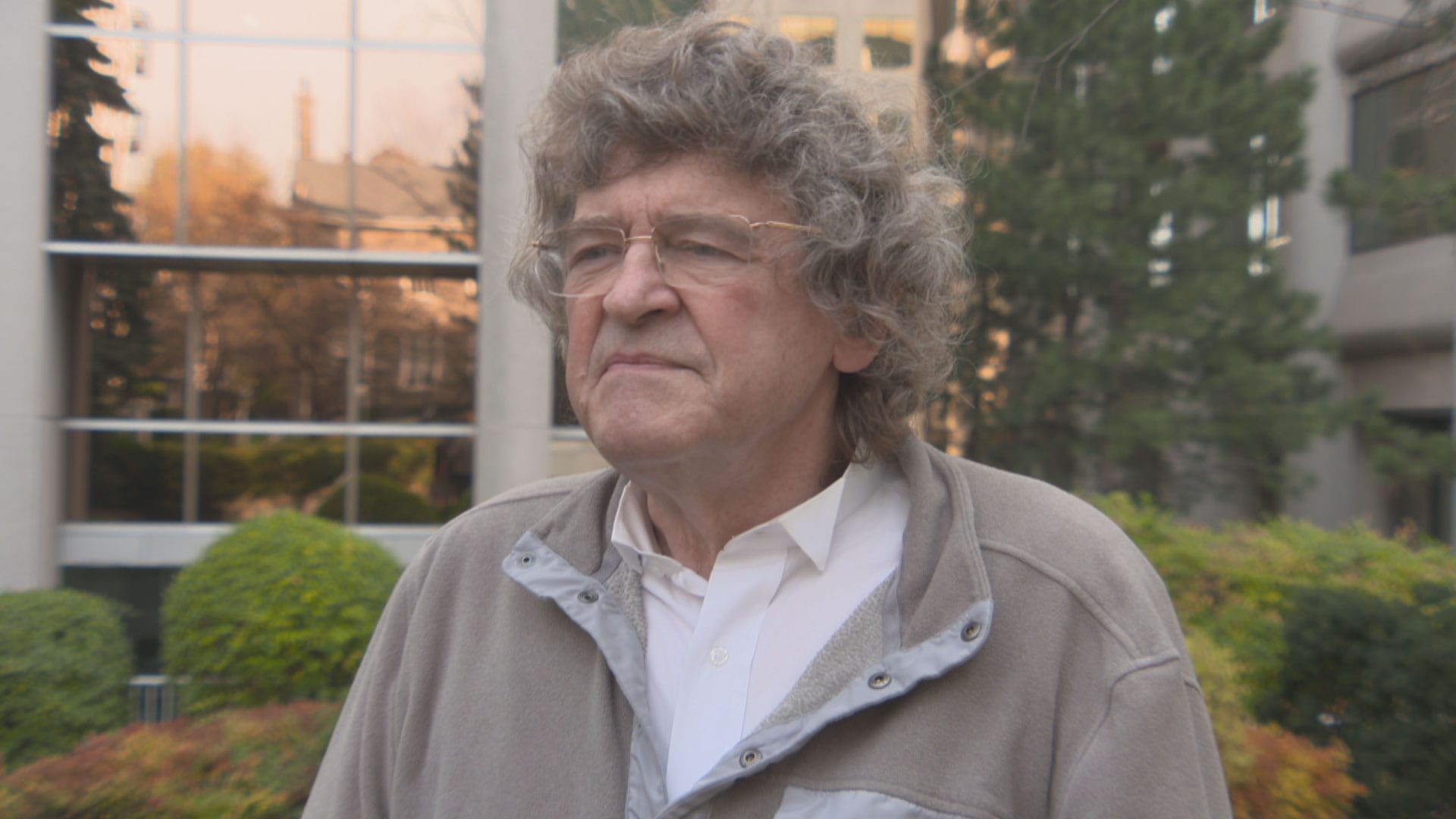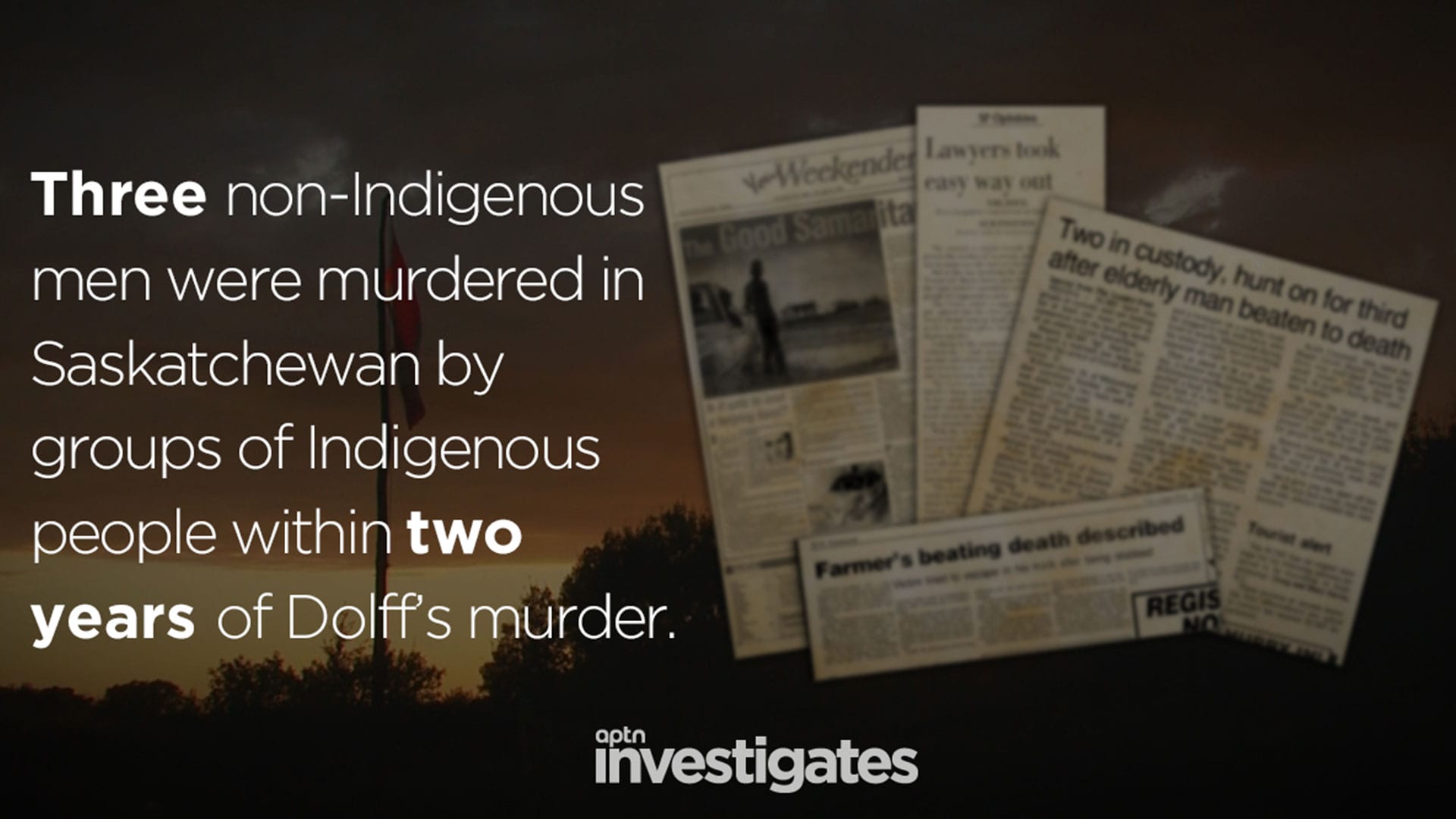APTN Investigates: A Life Sentence – Watch part 1 here.
In the early 1990s, rural Saskatchewan experienced a series of horrific murders. The victims were non-Indigenous men killed by Indigenous people.
That was the setting in which Odelia Quewezance and her sister Nerissa were tried and convicted for the murder of Anthony Joe Dolff, 70, of Kamsack-area, even though court heard a confession from their then 14-year old cousin, Jason Keshane.

Advocates and investigators assisting the two women in their quest for freedom say it is an important context that may have influenced their jury, chosen from the same area where the slayings occurred in 1991 and 1992.
“I strongly believe that this was a miscarriage of justice,” said Jolene Johnson, a private investigator working on the case. “There were other cases, other murders, prior to this particular case.”
Dolff’s death was the fourth in a series of murders that began with the brutal slaying of Oran McElree, 45 of Balgonie, Sask.
The scrap business owner was beaten and stabbed to death by three Indigenous hitchhikers he picked up in January 1991.
All three were sentenced to life in prison.
In August 1992, William Dove, 73, was lured from his cabin in Roundlake, Sask. by a group of men claiming car trouble. He was beaten to death by two men and a teenager.
All three were convicted of manslaughter and one was released on day parole after two years, a decision that outraged the public.
John Sorgensen, 41, was killed later that year in the Kamsack-area after he was also asked for help with car trouble. His badly beaten body was found near his burned-out truck. Five men and youths from nearby Cote First Nation were convicted of murder.
Author and former Saskatoon Star Phoenix journalist Warren Goulding remembers the case.
“John Sorgensen was a very much-loved part of the community,” he said. “A guy who would help his neighbors and, you know, is a very unfortunate outcome. I think there was an appetite for a pound of flesh on that one.”
There were even suspicions that the murder was motivated by satanism. It was a theory raised in Odelia and Nerissa’s trial in January 1994.
According to court documents, Odelia is asked at one point if she is “a devil-worshipper.”
Her younger sister Zerlina Quewezance of Saskatoon continues to work towards freeing her sisters. She claims RCMP officers asked her the same question.

“It was offensive,” she told APTN Investigates. “We were raised traditional, not to worship something evil.”
Odelia’s partner, Jay Koch of Rhien, Sask. has stood by her for more than 30 years. The couple had three daughters together despite Odelia’s long incarceration.
“I try and go at least every two months to take the girls to see their mother,” he said, adding that the family has stayed close. “They deserve it.”
He reached out to prison advocate and wrongful conviction survivor David Milgaard earlier this year.
Milgaard said while context is important, he feels the sisters should be freed from prison for one simple reason:
“You have a confession of a person that was responsible for committing the crime,” he said. “I don’t think we really need to look beyond that.”

Keshane told court in 1993 that he was responsible for the murder but he also admitted he lied several times to RCMP investigators.
Dolff had been stabbed 17 times, including twice in the heart. He had a telephone cord tightly wrapped around his neck and a television thrown at his head after a night of partying at his home on the edge of Keeseekoose First Nation, approximately 17 km north of Kamsack.
Keshane pleaded guilty to second-degree murder and received a four-year sentence which included two-and-a-half years in a youth facility.
The women, who were 19 and 21 years old at the time, received life sentences with no chance of parole for 10 years.
They have always maintained they were innocent of second-degree murder and for two years, they appealed their convictions all the way to the Supreme Court of Canada to no avail.
But now they have some high-profile help.
James Lockyer, famed wrongful conviction lawyer and founder of Innocence Canada, recently signed on to represent Odelia and her sister.

He said there were multiple statements used to convict the sisters even though they declined to give statements without their lawyer present.
“They made no attempt to tape record them that night, record them in any manner,” he said, “So we don’t see their condition when they’re arrested the following morning and we don’t see them say what the police say they said to them after they were arrested. So everything went wrong there, too.”
Lockyer points out that the sisters were ordered to go to the Pine Grove Correctional Centre, northeast of Saskatoon, a five-hour drive from Kamsack to await trial but that didn’t happen. Instead they were held at the Kamsack RCMP detachment for days.
“They were held for some three or four days at the police station, which kind of sounds like, you know, the Deep South in the United States,” he said. “To me, when you put all the troubles together this is a clear case of manslaughter and not a case of murder.”
He plans to ask Justice Minister David Lametti to review the case.
Watch Part 1: APTN Investigates: A Life Sentence
Lametti’s office declined an interview request.
“The minister has the power himself to quash the murder conviction and substitute a manslaughter conviction,” he said. “That is the remedy we would hope for.”
Nerissa Quewzance is unlawfully at large and was unable to be interviewed but Odelia said she has hope she will be freed soon.
Her final thoughts in our interview are for Anthony Joseph Dolff.
“I continue to pray for him and his family. Nobody deserves to die that way,” she said, “I didn’t kill him.”













